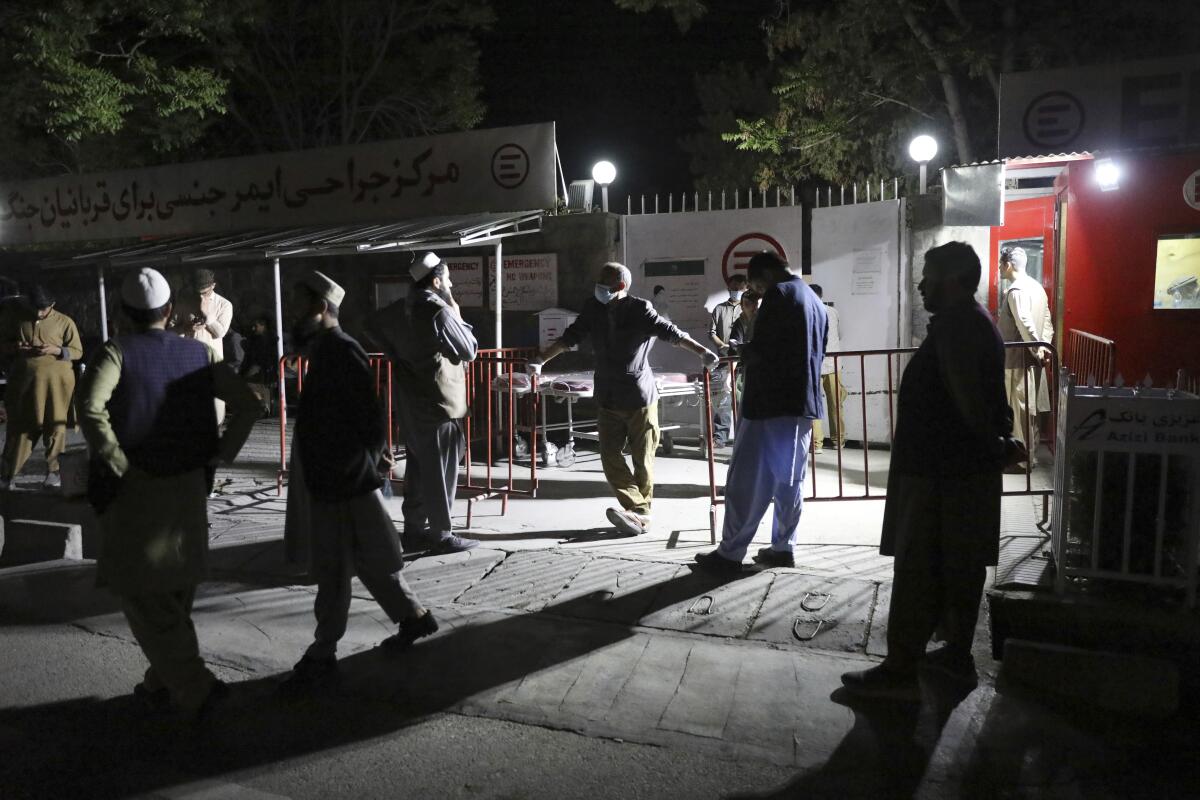Suicide truck bomber hits Afghan guest house, killing 14 and wounding up to 90

KABUL, Afghanistan — A powerful suicide truck bombing struck a guest house in eastern Afghanistan on Friday, killing at least 14 people and wounding as many as 90, the Interior Ministry said.
No one immediately claimed responsibility for the bombing in Pul-e-Alam, the capital of Logar province, and there was no indication as to why the guest house was targeted. In Afghanistan, guest houses are lodgings often provided for free by the government, usually for the poor, travelers and students.
The attack came on the eve of the official date set for the start of the final withdrawal of U.S. and NATO troops from Afghanistan. The Taliban, which had demanded that all U.S. troops pull out of Afghanistan by May 1, has not offered any guarantees for the safety of the departing troops.
There was no indication the bombing was connected to the pullout and there are no U.S. or NATO troops in Logar.
Rasool Gul Samar, head of the Logar provincial health department, said five bodies were brought to the hospital in Pul-e-Alam. He said that among the dozens of wounded, 12 who were in critical condition were transferred to the capital, Kabul, for treatment.
Hasib Stanikzai, head of the Logar provincial council, said the death toll could climb further. At the time of the attack, he said, a group of local policemen were staying at the guest house, waiting for transportation home. Other rooms were occupied by students from more remote districts who had come to the provincial capital for university entrance exams.
Young Afghans fear losing new freedoms and their lives to the Taliban as U.S. troops prepare to exit.
Interior Ministry spokesman Tariq Arian said the roof of the guest house had collapsed in the bombing and there were fears bodies could be trapped in the rubble.
After 20 years, Washington is ending its “forever war” in Afghanistan. Starting on Saturday, the last remaining 2,500 to 3,500 American troops will begin leaving the country, to be fully out by Sept. 11 at the latest.
The pullout comes amid a resurgent Taliban, which controls or hold sway over half of Afghanistan.
More to Read
Sign up for Essential California
The most important California stories and recommendations in your inbox every morning.
You may occasionally receive promotional content from the Los Angeles Times.











